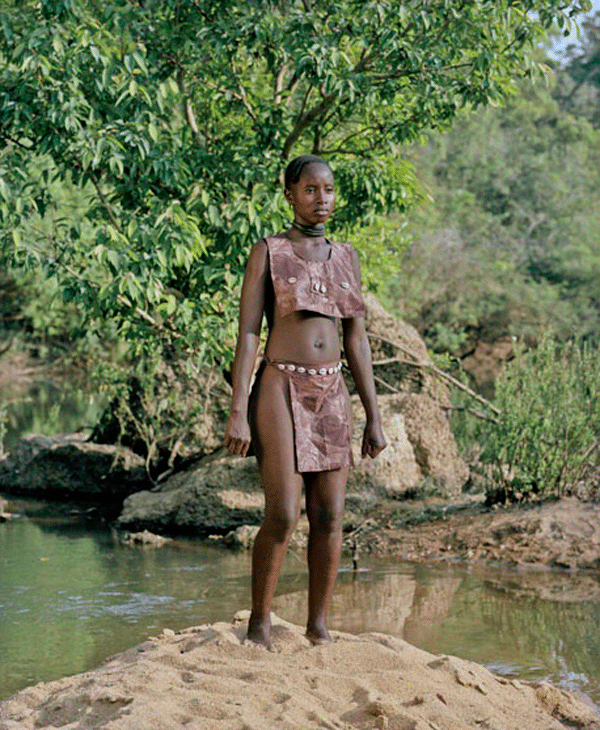African-European photographer Namsa Leuba’s curiosity with African identity within the Western world has been a recurrent theme in her work stemming from her racially mixed upbringing in Switzerland. In her latest photographic series titled “YaKalaBen”, Leuba traveled to Guinea Conakry where she photographed local subjects wearing bizarre tribal artifacts and attire. In each portrait the Swiss is inspired by the construction and deconstruction of the human body as part of ceremonial rituals.
Some of the subjects resemble voodoo dolls covered in ritualistic artifacts, common to the cosmology of the Guineans. Explicit scenes of exorcism, twisted bodily figures and animal slaughter is strikingly captured in a dusty African setting. According to Leuba the ritualistic series is part of a whole “symbolic order” and is meant to fit into the aesthetic of Westerners’ taste.
The Western gaze that focuses on Eurocentric points of view upon an African society is controversially apparent in these images, which make them even more shocking, not only for the Guineans who were said to be afraid and felt exploited by Leuba’s “practices” but also Europeans who might interpret the images as savage. In one of the photographs a tribal costume is mockingly made from American flags.
In a globalised and technology driven world that is characteristically Western, there tends to be in a constant battle with the forgotten and traditional cultures that still manage to survive in underdeveloped places like Guinea. For us who might be blissfully unaware of these cultural divides can appreciate Leuba’s attempt in creating something that is raw and thought provoking.With “YaKalaBen” Leuba invite us behind her lens to give us a glimpse of the ancient and fascinating traditions of a strange and colourful Guinean tribe.
Words: Talita Calitz
Sources: namsaleuba.com, lostateminor.com
images: namsaleuba.com














